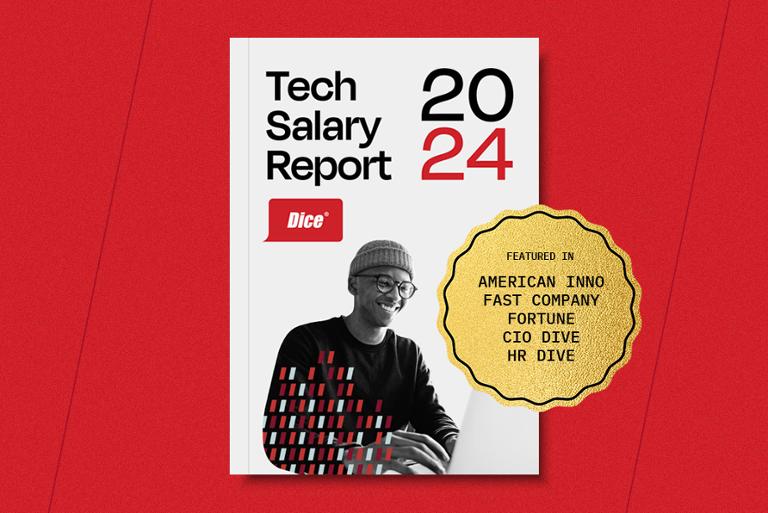How do H-1B salaries compare to the average technologist’s salary? According to the latest Dice Salary Report, the average technologist made $97,859 in 2020 (an increase of 3.6 percent from 2019), which is a pretty good salary—but H-1B recipients at some of the nation’s largest technology companies made far more.
For H-1B data, we’re relying on the H-1B Salary Database, which indexes the Labor Condition Application (LCA) disclosure data from the United States Department of Labor (DOL). As you can see, the largest tech companies pay their H-1B workers comfortable six-figure salaries:
Yes, the median H-1B salaries at the big tech companies are high, but that’s not the whole story. Across the country, many companies subcontract H-1B workers from business-services and consulting firms—and the latter tends to pay those workers quite a bit less than what they’d make on their own at a big tech firm. At Tata, for example, the median salary (again, according to the H-1B Salary Database) is $67,766; at Accenture, it’s $94,400.
As we’ve pointed out before, many of these large tech firms subcontract a substantial number of H-1B workers from other firms. According to a dataset from the U.S. Department of Labor on H-1B data for fiscal year 2019, for example, Apple sourced 2,274 visa workers from outside firms, while Google did the same for 889. Whether sourced directly or via a subcontractor, many of these visas also tend to be for “software developer” or “software engineer,” making the workers’ ostensible specializations harder to pin down.
During the Trump administration, the H-1B application denial rate for subcontractors spiked as U.S. Citizenship and Immigration (USCIS) subjected these companies to rigorous scrutiny. Critics of the visa system fear that the Biden administration will relax Trump’s policies, leading to a higher approval rate for H-1B applications.
However, there are signs that the Biden administration might continue at least one Trump-era immigration policy in some form. Biden’s U.S. Citizenship Act of 2021 features language (in the respective Senate and House bills) that prioritizes visas based on higher wages. If enacted, that would effectively dispose of the current H-1B lottery in favor of a system that favors high-wage applicants—which would impact the business model of all those consulting firms that depend on paying workers less.

Find out which industries and tech hubs are paying top dollar for tech talent in Dice’s latest Tech Salary Report.



